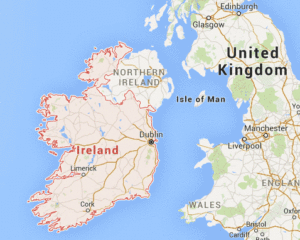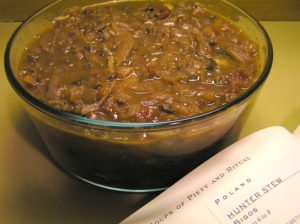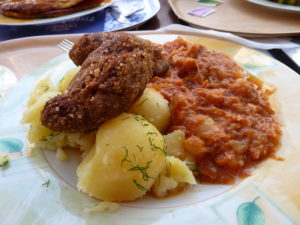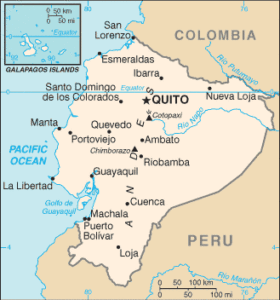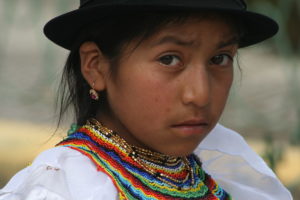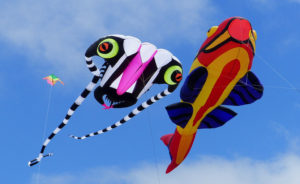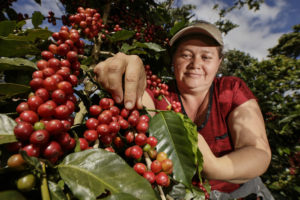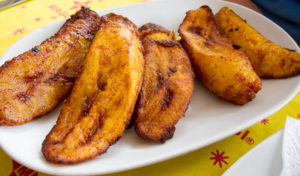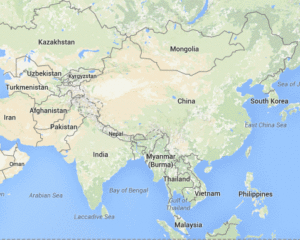Milanesas or Shnitzels 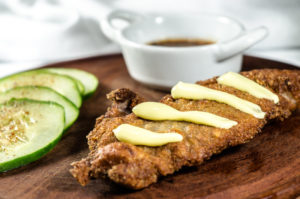
Ingredients
- 6 veal rounds
- 2 eggs, whipped
- 1 cup of bread crumbs
- salt and pepper to taste
Instructions
- Dip the milanesas (veal rounds) in the whipped eggs and in the bread crumbs with salt and pepper.
- Shake of the excess bread crumbs.
- Fry the milanesas until golden, or bake in the oven at 350°F (place the milanesas in a pan, cooked them for 10 minutes, then turn them over and baked them 10 more minutes). You can make them a la napolitana with tomato sauce and mozzarella on top.
You can served them with French fries, mashed potatoes, sweet potatoes, salad or rice.
Submitted by Betiana Turteltaub, au pair in Villanova, Pennsylvania, 2004-2005
Photo by: Matias Berhardt {flickr}


